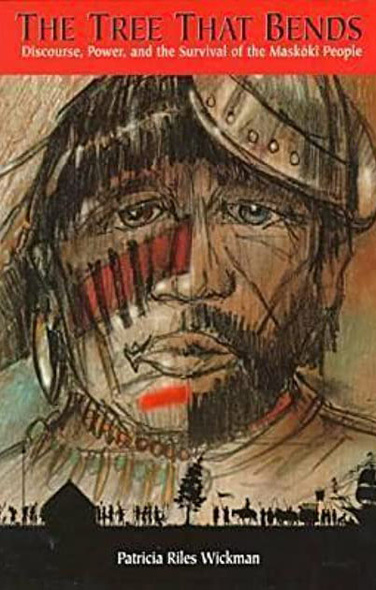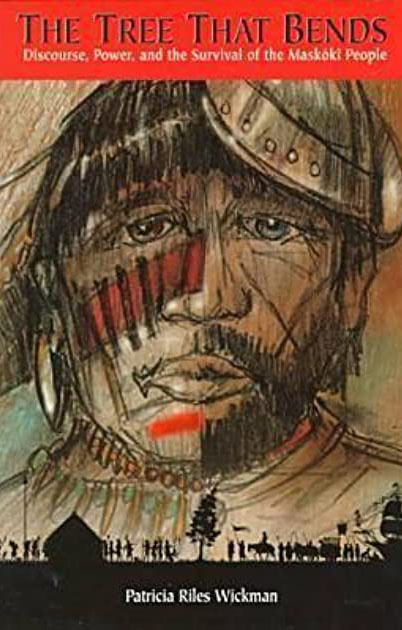The Tree That Bends
Discourse, Power, and the Survival of Maskoki People
University of Alabama Press
A new paradigm for the interpretation of southeastern Native American and Spanish colonial history and a new way to view the development of the United States
In her compelling and controversial arguments, Wickman rejects the myths that erase Native Americans from Florida through the agency of Spaniards and diseases and make the area an empty frontier awaiting American expansion. Through research on both sides of the Atlantic and extensive oral history interviews among the Seminoles of Florida and Oklahoma, Wickman shatters current theories about the origins of the people encountered by the Spaniards and presents, for the first time ever, the Native American perspective. She describes the genesis of the groups known today as Creek, Seminole, and Miccosukee—the Maskoki peoples—and traces their common Mississippian heritage, affirming their claims to continuous habitation of the Southeast and Florida. Her work exposes the rhetoric of conquest and replaces it with the rhetoric of survival.
In her compelling and controversial arguments, Wickman rejects the myths that erase Native Americans from Florida through the agency of Spaniards and diseases and make the area an empty frontier awaiting American expansion. Through research on both sides of the Atlantic and extensive oral history interviews among the Seminoles of Florida and Oklahoma, Wickman shatters current theories about the origins of the people encountered by the Spaniards and presents, for the first time ever, the Native American perspective. She describes the genesis of the groups known today as Creek, Seminole, and Miccosukee—the Maskoki peoples—and traces their common Mississippian heritage, affirming their claims to continuous habitation of the Southeast and Florida. Her work exposes the rhetoric of conquest and replaces it with the rhetoric of survival.
An important cross-disciplinary work, The Tree That Bends reveals the flexibility of the Maskoki people and the sociocultural mechanisms that allowed them to survive the pressures introduced at contact. Their world was capable of incorporating the New without destroying the Old, and their descendants not only survive today but also succeed as a discrete culture as a result.
Wickman's purposes are to establish a cultural continuum between the Mississippian peoples and the Southeastern inhabitants she labels the 'Maskoki,' and to elaborate a new interpretive paradigm for ethnohistory. Using deconstruction as her tool, Wickman considers earlier researchers as entrapped in the rhetoric of the Conquest and thus unable to perceive the truth.'
—Choice
It was with a great deal of pleasure and pride that I read this volume. History—especially the history of the Southeast—has tried for centuries to write me and my people off the face of the earth, as if we had never existed. Dr. Wickman, however, has finally put our history in proper perspective. Many of my people say that white people are white because they have no guilt but, with this book, Dr. Wickman has given me back my dignity.'
—James E. Billie, Chairman, Seminole Tribe of Florida
Patricia Riles Wickman is a Florida historian and former Senior Curator for the State of Florida.





